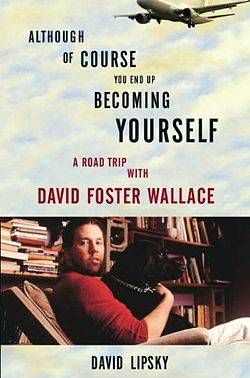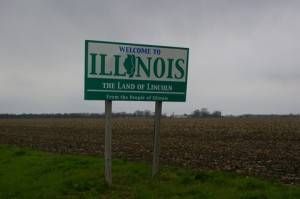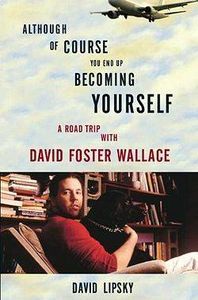
“Our mouths are incapable, white violets cover the earth”—On the Road with David Foster Wallace, with Visits to John Locke and Anne Carson

Lipsky presents the interview primarily as a running dialogue, with the occasional bracketed aside. In one of the briefest of the asides, Lipsky mentions Wallace’s sister visiting her brother in a Boston psychiatric facility and cutting Wallace’s hair, a moment that is small on the page but feels hugely moving. This was during graduate school at Harvard, when Wallace went to student services and asked for help—something he was proud of because it proved he wanted to stay alive. In another aside, Lipsky considers an even younger Wallace, returned midway through undergrad at Amherst to his parents’ home in Illinois, feeling like a failure, driving a school bus, reading and reading, and—and this is my read—wondering how much might be possible for his life given the severity of what was his first serious bout of depression. Thinking of the eventual critical exuberance and acclaim for Infinite Jest, Lipsky writes: “Wouldn’t it be great to fall in through this transcript, back to [his parents’] house, and tell him to live differently, explain to him how it was all going to go? It’s suddenly odd that this isn’t possible.”

Back at home following my daily commutes with the Davids, I was also reading John Locke and Anne Carson. One takeaway that feels related: Words fail us; words are all we have. In one of his stories, Wallace describes words as a kind of tiny keyhole through which we struggle to communicate the gigantic-always moving-emotiointellectual reality racing inside us. The limitations of words and language are a focus in Locke’s Essay on Human Understanding, parts of which seem to echo or rather foreshadow parts of Wallace’s celebrated Kenyon College commencement speech. Locke’s argument that words are several steps removed from reality might be diagrammed like so:
Step 1) The actual event Step 2) The intake via our senses
Step 3) The immediate idea generated in our minds Step 4) The word appended to the idea by our minds
By the time this word leaves our mouths or hits the page and reaches the listener/reader a couple more steps slip past, the word and the idea it generates in the listener/reader sliding further and further away from the actual first-thing event. Locke describes consequences of this distance between words and what they signify, including 1) our ability to manage abstract thought and contemplation, something that makes much of human life possible but that, 2) given words’ somewhat flimsy connection to actual event, leads to all manner of miscommunication and misunderstanding, as we take for granted language’s ability to fully convey specific intended meanings.
One of Locke’s prescriptions is to try to hold off on attaching words to experience as long as possible. Though Locke doesn’t offer much advice on putting this into practice, it’s worth trying. Take a walk somewhere where you’ll confront a variety of sensory experience. As you go, keep your head up, eyes open, and try to turn off that part of your brain that wants to put what you see into words. In a very conscious but nonverbal way, just see what you see. This is perhaps a first step toward eventually, on some very fundamental human level, being able to just feel what you feel, to moments of real human emotion and experience not reduced by language, and thus perhaps to at least dipping a toe into what that famous Wallace commencement speech identifies as “sacred,” a moment of being that’s “on fire with the same force that made the stars.”

All of which brings me to Carson and her book The Beauty of the Husband. It’s a quick read, what Carson calls a fictional essay of 29 tangos and what mostly feels like narrative verse. The book explores a big abstract question—the relationship between beauty and truth—made personal and particular in the troubled marriage of an unnamed couple, the husband as Beauty and the wife as Truth. Just after finishing Carson’s book, I couldn’t have told you much more about it than what I’ve just written, but by the time I’d climbed from my recliner and walked across the apartment and was standing over the sink, the water running not quite into a glass, some feeling had me leaning against the refrigerator. It was a sudden, real sadness that Beauty and Truth can’t make it work—a phrase that makes me laugh now but was the best I could manage then, and now we’ve already left those few words behind but they’re still here on this page and I hadn’t yet begun to think about how to describe evening sun angling across kitchen cabinets and the stillness there after the closing of a book, before the breeze rattled in through the window screen and me in my skin.
_________________________
Sign up for our newsletter to have the best of Book Riot delivered straight to your inbox every two weeks. No spam. We promise.
To keep up with Book Riot on a daily basis, follow us on Twitter, like us on Facebook, , and subscribe to the Book Riot podcast in iTunes or via RSS. So much bookish goodness–all day, every day.














